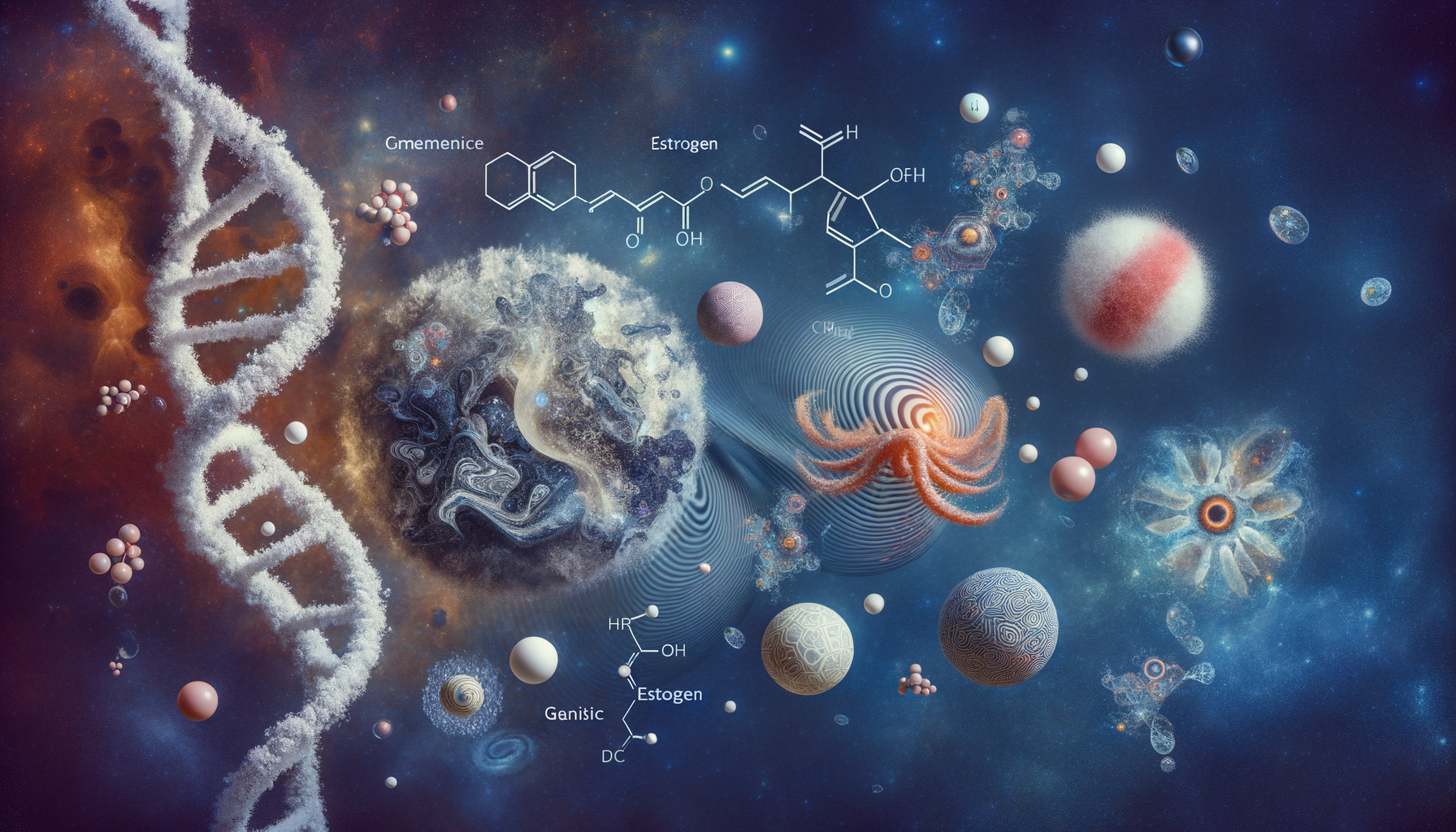The Role of Estrogen in the Body
Estrogen is a hormone that plays a crucial role in the development and regulation of the female reproductive system and secondary sexual characteristics. It is produced primarily in the ovaries, but also in smaller amounts by the adrenal glands and fat tissues. Estrogen is essential for various bodily functions, including:
- Regulating the menstrual cycle
- Maintaining the health of the reproductive organs
- Supporting bone health by working with calcium and vitamin D
- Influencing mood and emotional well-being
While estrogen is vital for many bodily functions, its influence on breast tissue can be complex. The hormone promotes the growth of breast cells, which is beneficial in normal development but can become problematic if cells grow uncontrollably. Understanding how estrogen interacts with breast tissue is key to recognizing its potential link to breast cancer.
Understanding the Link Between Estrogen and Breast Cancer
The relationship between estrogen and breast cancer is a topic of significant research and discussion. Estrogen can stimulate the proliferation of breast cells, and prolonged exposure to high levels of estrogen has been linked to an increased risk of developing breast cancer. Several factors can influence estrogen levels, including:
- Age and menopausal status
- Body weight and fat distribution
- Use of hormone replacement therapy (HRT)
- Genetic predispositions
Studies have shown that women with higher lifetime exposure to estrogen, such as those who begin menstruating at an early age or enter menopause later, may have a higher risk of breast cancer. Understanding these risk factors can help in developing strategies for prevention and early detection.
Prevention and Risk Reduction Strategies
Reducing the risk of estrogen-related breast cancer involves a combination of lifestyle changes and medical interventions. Here are some strategies that may help:
- Maintaining a healthy weight through diet and exercise
- Limiting alcohol consumption
- Considering the risks and benefits of hormone replacement therapy with a healthcare provider
- Regular screening and self-examinations
Engaging in a healthy lifestyle can not only reduce the risk of breast cancer but also improve overall well-being. It’s important to have open discussions with healthcare providers to tailor prevention strategies to individual needs and risk factors.
Current Research and Developments
Research on estrogen and breast cancer is continually evolving, with scientists exploring new methods to understand and combat the disease. Recent studies focus on:
- Identifying genetic markers that influence estrogen metabolism
- Developing targeted therapies that block estrogen receptors in breast cancer cells
- Investigating the role of environmental factors in estrogen-related cancer risk
These advancements hold promise for more personalized and effective treatment options. Staying informed about the latest research can empower individuals to make educated decisions about their health.
Conclusion: Navigating Breast Health with Knowledge
Understanding the role of estrogen in breast cancer is crucial for women aiming to take control of their health. By recognizing the factors that influence estrogen levels and their potential impact on breast cancer risk, women can make informed choices about prevention and treatment.
Regular screenings, a healthy lifestyle, and staying updated on medical advancements are essential steps in maintaining breast health. Empowerment through knowledge allows women to navigate their health journeys with confidence and proactive strategies.








